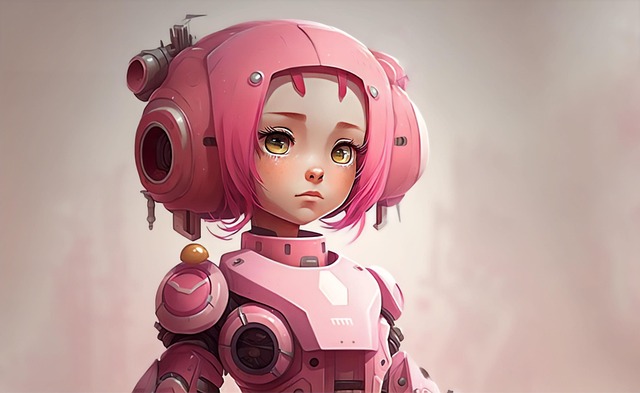# AI Technology: Transforming Industries and Enhancing Human Experiences in the Digital Age
Artificial Intelligence (AI) has rapidly evolved over the past decade, becoming a cornerstone of technological advancement across various sectors. As industries embrace AI, they are witnessing significant transformations that not only streamline operations but also enhance the overall human experience. This article delves into the multifaceted impact of AI technology, exploring its applications in different industries and its implications for the future.
## Revolutionizing Industries with AI
The integration of AI into various industries has led to unprecedented changes in how businesses operate. In the healthcare sector, for instance, AI algorithms are being utilized to analyze vast amounts of medical data, aiding in diagnostics and treatment recommendations. By leveraging machine learning, healthcare providers can identify patterns in patient data, which allows for more accurate predictions and personalized treatment plans. This shift not only improves patient outcomes but also optimizes resource allocation within healthcare systems.
In the realm of finance, AI is reshaping how transactions are conducted and risks are assessed. Financial institutions are employing AI-driven algorithms to detect fraudulent activities in real-time, thereby enhancing security measures. Furthermore, robo-advisors are revolutionizing investment strategies, providing tailored financial advice based on individual client profiles and market trends. These advancements allow for more informed decision-making and increased accessibility to financial services for a broader audience.
Retail is another industry experiencing significant transformation due to AI. Retailers are harnessing AI technologies to analyze consumer behavior, enabling them to create personalized shopping experiences. Through predictive analytics, businesses can forecast demand, optimize inventory levels, and enhance customer engagement. Chatbots and virtual assistants are also becoming commonplace, providing customers with instant support and guidance, which ultimately leads to higher satisfaction rates.
## Enhancing Human Experiences through AI
Beyond industrial applications, AI is fundamentally changing how individuals interact with technology in their daily lives. Smart home devices, powered by AI, have revolutionized the way people manage their homes. Voice-activated assistants such as Amazon’s Alexa and Google Assistant enable users to control various aspects of their living environment, from adjusting lighting to managing home security systems. These innovations not only provide convenience but also enhance the quality of life for many individuals.
Education is another area where AI is making a profound impact. Adaptive learning platforms utilize AI to tailor educational content to the unique needs of each student. By analyzing learning patterns and progress, these platforms can offer personalized recommendations, ensuring that students receive the support they need to succeed. Furthermore, AI-driven tools are assisting educators in administrative tasks, allowing them to focus more on teaching and less on paperwork.
Moreover, AI is playing a pivotal role in the creative industries. Artists, musicians, and writers are increasingly collaborating with AI systems to explore new forms of expression. Generative algorithms can create music, art, and literature, challenging traditional notions of creativity. This synergy between human creativity and machine intelligence opens up new avenues for artistic exploration, pushing the boundaries of what is possible.
## The Future of AI and Its Societal Implications
Looking ahead, the potential of AI technology appears boundless, yet it also raises important ethical considerations. As AI systems become more integrated into society, questions surrounding privacy, accountability, and bias must be addressed. The collection and analysis of personal data by AI systems necessitate robust data protection measures to safeguard individual privacy. Policymakers and technologists must collaborate to establish frameworks that ensure responsible AI usage while fostering innovation.
Furthermore, the impact of AI on the workforce cannot be overlooked. While AI has the potential to automate repetitive tasks, there is a growing concern about job displacement. However, it is essential to recognize that AI can also create new opportunities. By automating mundane tasks, AI allows employees to focus on more complex and creative aspects of their jobs. Upskilling and reskilling initiatives will be crucial in preparing the workforce for an AI-driven future, ensuring that individuals can thrive alongside technological advancements.
In addition to workforce implications, the global landscape is being reshaped by AI technology. Countries that invest in AI research and development are likely to gain a competitive edge in the global economy. Collaborative efforts among nations to share knowledge and resources can accelerate AI advancements, ultimately benefiting societies worldwide. However, it is vital to approach this technological race with a sense of responsibility, ensuring that the benefits of AI are distributed equitably.
## Conclusion
AI technology is undeniably transforming industries and enhancing human experiences in the digital age. From revolutionizing healthcare and finance to reshaping education and creative endeavors, the applications of AI are vast and varied. As we navigate this rapidly changing landscape, it is essential to address the ethical considerations and societal implications that accompany these advancements. By fostering responsible AI development and embracing the opportunities it presents, we can harness its potential to create a brighter, more efficient, and inclusive future for all. The journey of AI is just beginning, and its impact will continue to unfold in ways that we are only beginning to understand.











